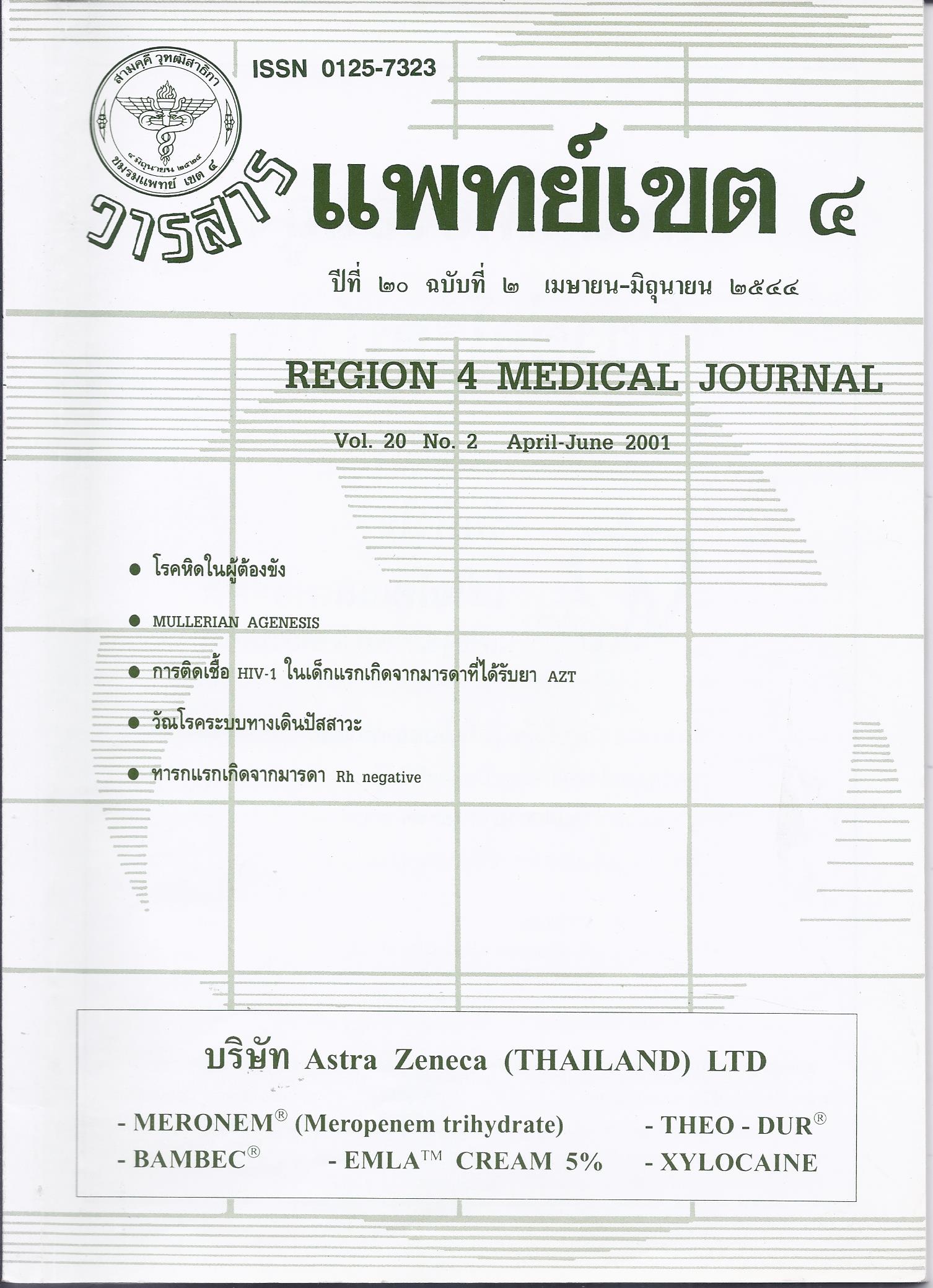การติดเชื้อHIV-1 ในเด็กแรกเกิดจากมารดาที่ได้รับ Zidovudine ในเขตภาคกลางตอนล่าง
บทคัดย่อ
The perinatal HIV prevention policy in Thailand were implement thoughout public health community by Ministry of Public health (MOPH) since A.D. 2000 by support zidovudine (ZDV) and short course prophylactic regimen. The HlV-PCR testing service of these infants in Lower Central part of Thailand were evaluated for transmission rate. The requisition form used by HlV-PCR testing service included information the ZDV receiving in mother and regimens were obtained. There were 512 infants had PCR testing for HIV-1 infection during April 2000, though November 2001 from 10 hospitals. 245 infants from 9 hospitals followed MOPH program and 64 infants from the other followed Thai Red Cross program. There are 3 from 54 (5.6% ; 95% CI -0.5 to 11.7), 6 from 126 (4.8% ; 95% Cl 1.1 to 8.5) and 1 from 65 (1.5% ; 95% CI -0.5 to 4.5) were infected respectively for MOPH program each year during 2000 to 2001. 10 from 245 infants (4.1% ; 95% CI 1.6 to 6.6) of total infection in MOPH program were compared to 2 from 64 (3.1% ; 95% Cl -1.1 to 7.3) of Thai Red Cross program found no statistic difference (P= 0.531, α = 0.05 Fisher exact test), While 37 from 178 infants (20.8% ; 95% CI 14.8 to 26.8) were infected in ZDV non prophylactic group. The infection rate are significantly decreased in both ZDV treatment regimens. The result of this study indicates that perinatal HIV prevention by both MOPH and Thai Red Cross regimens are effective and can reduce the rate of infection in infants in practical routine use in the lower central part of Thailand.
ดาวน์โหลด
เผยแพร่แล้ว
รูปแบบการอ้างอิง
ฉบับ
ประเภทบทความ
สัญญาอนุญาต
ลิขสิทธิ์บทความเป็นของผู้เขียนบทความ แต่หากผลงานของท่านได้รับการพิจารณาตีพิมพ์ลงวารสารแพทย์เขต 4-5 จะคงไว้ซึ่งสิทธิ์ในการตีพิมพ์ครั้งแรกด้วยเหตุที่บทความจะปรากฎในวารสารที่เข้าถึงได้ จึงอนุญาตให้นำบทความในวารสารไปใช้ประโยชน์ได้ในเชิงวิชาการโดยจำเป็นต้องมีการอ้างอิงถึงชื่อวารสารอย่างถูกต้อง แต่ไม่อนุญาตให้นำไปใช้ในเชิงพาณิชย์




